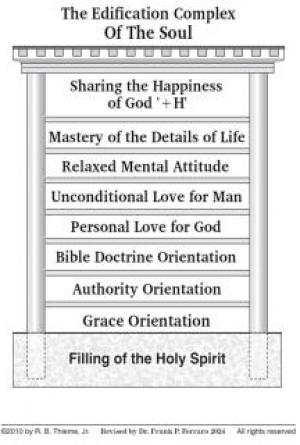and make qadâ of the past ones], it is written in Mustasfâ that it is
permissible for this person to enjoin the isqât for his prayers of
salât which he has not been able to make qadâ of.”
It is written in Jilâ ul-qulûb: “Other’s rights include debts to be
paid, dues resulting from practices such as consignment, extortion,
theft, employment and purchase, physical rights proceeding from
acts of encroachment such as battery, injury and unjust
employment, and spiritual rights ensuing from acts of wrongdoing
such as blackguardism, mockery, backbiting and slander.
If one-third of the property of the deceased person who has
made a will suffices for the isqât, the guardian has to give the fidya
out of that property. It is written in Fath-ul Qadîr that, if it does
not suffice, the heir can donate the deficit of the one-third.
Likewise, if the deceased person enjoined in his will the
performance of the hajj which was fard for him, it is not acceptable
for his heir or someone else to present the money for hajj. If he
does not enjoin it before dying and if his heir performs the isqât or
the hajj with his own money, his debt of hajj will have been paid.
Some (savants) say that these things are not permissible with the
money of someone other than the heir. But the authors
(rahmatullâhi ta’âlâ ’alaihim ajma’în) of the book Durr-ul
mukhtâr, Marâqil-falâh and Jilâ-ul qulûb said that they are
permissible.
In lieu of wheat, flour, one sâ’ of barley, dried dates or raisins
can be calculated and given for the isqât of kaffârat. [Because
– 177 –
these things are more valuable than wheat, they are more useful to
the poor]. Instead of any of these, gold or silver of the same value
can be given. [The isqât cannot be performed with paper money].
It is not necessary to give fidya for sajda-i tilâwat.
How to Make Isqât and Dawr
If the money to be given for fidya exceeds one-third of the
property, the walî cannot spend more than the one-third without
the inheritors’ consent. It is written in the book Qunya that if the
deceased had debts, it is not permissible to carry out his will even
if his creditors give approval for the fulfillment of the will. For,
Islam commands that the debts must be paid first. Paying the debt
cannot be postponed with the creditor’s consent.
In case that it is not known at what age the person died, who
had enjoined the isqât of all his prayers of namâz, his will is
acceptable when one-third of the property he has left does not
suffice for the isqât of his prayers of namâz. If one-third of the
property equals and even exceeds (the amount to be spent for) the
isqât, his will is not acceptable; it becomes invalid. For, when the
one-third does not suffice for the isqât, the number of the prayers
of namâz for which the isqât is to be performed with the one-third
will be known, and so his will shall be sahîh (valid) for those
prayers of namâz; and (the part of) his will concerning his
remaining prayers of namâz will become laghw, that is, empty
words. When the one-third is in excess, his lifetime, and hence the
number of his prayers of namâz, will not be known, and so his will
shall become invalid.
If the deceased person did not have any property, or if one-
third of the property he left behind does not suffice for the isqât,
or if he did not make a will and the walî (custodian) wants to
perform the isqât with his own property, he will perform dawr. But
the walî does not have to perform dawr. To perform dawr, the walî
borrows as much gold or silver - gold coins, bracelets, rings, valid
silver coins - as will suffice for a month’s or a year’s isqât. The
years of debt are calculated by subtracting twelve years - if the
deceased person is a man - or nine years - if the deceased person is
a woman - from their lifetime. Ten kilograms of wheat is to be
given for one day’s six prayers of namâz and three thousand and
six hundred kilograms for a solar year.
For example, when one kilogram of wheat cost 1.85 liras for the
– 178 –
isqât of a year’s namâz, six thousand five hundred and eighty-eight
or, let us say, six thousand and six hundred liras would be required.
Let us say one gold coin [which weighs seven grams and twenty
centigrams] costs a hundred and twenty liras, the isqât of a year’s
namâz requires fifty-five, or, circumspectly, sixty gold coins. The
deceased person’s walî borrows five gold coins (or other gold of the
same weight) and finds one or more, e.g. four, poor people who are
not fond of worldly things and who know and love their religion.
[These people must be poor enough to be exempted from the
liability of giving the fitra and to be among those who can be given
zakât. If they are not (so) poor, the isqât will not be acceptable].
The deceased person’s guardian, that is, the person to whom he
has made his will, or one of his inheritors or the person deputized,
gives the five gold coins to the first poor person, with the intention
of alms, saying, “I give you this gold as compensation for the isqât-
i salât of the deceased known as ……………...”
Then the poor person, (taking possession of the gold coins),
says, “I accept and take them, and I present them to you,” and
gives them to the inheritor or to the inheritor’s deputy, who takes
possession of them.
Then, the inheritor or the inheritor's deputy gives the gold
coins to the same poor person or the second one and takes them
back as being gifted.
Thus, one dawr (circulation; rotation) will be completed by
giving (the gold) to one poor person four times or to each of the
four poor people once and taking them back.
With one dawr (the deceased person) will have been absolved
of twenty gold coins of kaffârat of salât. If the deceased person was
a man and was sixty years old, 48x60=2880 gold coins will be
necessary for forty-eight years’ salât. So, the dawr is to be done
2880:20=144 times. If the number of gold coins is ten, 72 dawrs will
be done, and if the number of gold coins is twenty, thirty-six dawrs
will be completed. If the number of poor people is ten and the
number of gold coins is ten, too, twenty-nine dawrs will be
completed for the isqât of kaffârat for forty-eight years’ debt of
salât. Because:
The number of the years during which he (the deceased
person) did not perform namâz x the number of gold coins for one
year = the number of the poor x the number of gold coins
circulating x the number of dawrs. This applied to the example we
– 179 –
have given: 48x60=4x5x144=4x10x72=4x20x36=10x10x29
As it is seen, for determining the number of the dawrs (to be
done) for the isqât of salât, the number of the gold coins (required)
for one year will be multiplied by the number of the years of debt
of salât. Then the number of the gold coins circulating will be
multiplied by the number of the poor individuals. The result of the
first multiplication will be divided by the second. The result of the
division will indicate the number of dawrs. Wheat and gold
equivalent in paper money vary at approximately the same rate in
the course of time. In other words, the value of gold and the value
of wheat always go up and down correspondingly. For this reason,
as the amount of wheat for a year’s isqât does not change, so the
number of gold coins for one year’s isqât, i.e. Sixty gold coins, as
we have calculated above, remains almost the same. Therefore, in
the calculation of isqât the circumspectly accepted formula is,
except for some extraordinary situations: Five gold coins for the
isqât of a month’s salât. One gold coin for the isqât of a month’s
fasting in Ramadân. Thus, the number of the gold coins circulating
and the number of the circulations are calculated accordingly.
After the isqât for the namâz is finished, for the isqât of the
forty-eight years’ fasts omitted, that is, for the ones that must be
made qadâ of, he (the inheritor or his deputy) makes three dawrs
with five gold coins and four poor people. For, the isqât for the
kaffârat of a year’s (thirty days’) fasting requires fifty-two and-a-
half kilograms of wheat, or 5.25 grams of gold, i.e. 0.73 gold coins.
Hence, in the Hanafî Madhhab, one gold coin absolves the kaffârat
of a year’s fasting; and hence, it is necessary to give forty-eight gold
coins for forty-eight years. Completing one dawr with five gold
coins and four poor people means having given twenty gold coins.
After the performance of the isqât of the fasts requiring qadâ, a few
dawrs must be done first for zakât and then for the qurbân.
Doing the kaffârat of one oath requires ten poor people in one
day, and the kaffârat of one day’s fast that was broken without any
acceptable excuse and for which the kaffârat is necessary requires
sixty poor people in one day; and, one poor person cannot be given
more than half a sâ’ of wheat in one day. That is, the kaffârats for
several oaths cannot be given to ten poor people within the same
day. Then, the dawrs for the kaffârats of oaths and (broken) fasts
cannot be done in one day. If (the deceased person) enjoined (the
isqât) for his oaths, you give two kilograms of wheat or flour, or its
equivalent in other property such as gold and silver, to each of ten
– 180 –
poor people in one day. Or, you may give the same amount to one
poor person every day for ten successive days. Or, (calculating
and) giving (the whole expense in) paper money to a poor person,
you must say to him, “I appoint you my deputy. With this money
you shall buy yourself food and eat it for ten days, twice each day,
once in the morning and once in the evening!” If he buys other
things, such as coffee and newspapers instead of feeding himself as
advised, it will not be acceptable. The best way to do it is to
bargain with a restaurant and give the ten days’ expense to the
restaurant and have the poor person eat there every morning and
every evening for ten days. So is the case with the kaffârat of a fast
that was broken after the niyya (intention) and with the kaffârat of
zihâr; in either of these two cases, for one day’s kaffârat you give
half a sâ’ of wheat or other property of the same value to each of
sixty poor people in one day or to one poor person for sixty days
or feed him twice a day (for sixty days).
It is not necessary to perform the isqât of zakât not enjoined
(by the deceased person). The fatwâ permits the inheritor to
perform the dawr for the isqât of zakât by his own volition.
While making dawr, each time the poor people are given the
gold, the walî should intend for the isqât of salât or fast. The poor
person also should say, “I give (this) as a gift,” as he gives back the
gold and the walî should reply, “I have received (it).” If the walî
will not be able to perform the isqât, he appoints another person
as his deputy to perform the isqât for the deceased person.
It is written in the final part of Vasiyyetnâme, by Imâm Birgivî,
and in its explanation by Kâdîzâde Ahmed Efendi ‘rahmatullâhi
ta’âlâ ’alaihimâ’: It is a pre-condition that the poor people must not
have the nisâb amount (of property). It is permissible for them to
be the dead person’s relatives. When giving (the gold coins) to the
poor person, the walî must say, “I give these to you for the isqât of
so-and-so’s so and so many prayers of salât." And the poor person
must say, “I have accepted them,” and must know that the gold
coins belong to himself when he takes possession of them. If he
does not know this he must be taught beforehand. And this poor
person, showing kindness, gives the gold coins to another poor
person of his own accord, saying, “I give these to you for the isqât
of so-and-so’s salât.” The latter, taking possession of them, must
say, “I accept them.” When he takes possession of them he must
know that they are his property. The dawr will not be acceptable if
he takes them as a deposit for safe-keeping or to be gifted. And this
– 181 –
second poor person, after saying, ‘I take and accept them,’ gives
them to a third poor person by saying, “I give these to you the same
way.” Thus, dawrs must be done for prayers of namâz, for fasts, for
zakâts, for qurbâns, for sadaqa fitrs, for adak (votive offerings), for
(violated) human and all other creature rights. Fâsid and bâtil
buying, and selling are among (violated) human rights. It is not
permissible to do dawr for the kaffârats of an oath or fasting.
After the dawr is finished, the last poor person taking
possession of the gold coins shows kindness and presents them to
the walî of his own volition and of his own will. The guardian takes
them, saying, “I accept them.” If he (the poor person) does not
present them, they cannot be taken by force, for they are his own
property. The guardian gives these poor people some gold coins or
some paper money or some of the deceased person’s property and
presents the thawâb for the alms to the deceased person’s soul. A
poor person who is in debt or a child who has not reached puberty
must not join the dawr. For, it would be fard for him to pay his
debts as soon as he took possession of the gold coins. It would not
be permissible for him to give the gold coins to the next person for
the deceased person’s kaffârat instead of paying his debt. The
dawr would be acceptable, but he himself, let alone earning any
thawâb, would become sinful.
If a deceased person without any property, enjoined in his will
the performance of dawr, it is not wâjib for the walî to do the dawr.
It is wâjib for the dying person to will as much of his property as
sufficient for the isqât, provided that it shall not be more than one-
third of the inheritance. Thus, the isqât will be performed without
dawr being necessary. He will be sinful if he enjoins that the dawr
should be done with less than one-third of his property while one-
third of his property would suffice for the isqât. It is written in the
two hundred and seventy-third page of the fifth volume of Ibn
Âbidîn, “If a sick person has small children or poor grown children
who will need his inheritance, who have reached the age of
puberty and who are pious, it is better for him to leave his property
to his pious children instead of willing it for (the performance of)
supererogatory pious deeds and services.” The book Bezzâziyya
writes in its discourse on presents, “One should spend one’s
property on pious deeds and services instead of leaving it to one’s
sinful children (if they are so). For, it would mean to support sins.
And one should not give one’s sinful child money or property
more than his subsistence.”
– 182 –
If a person has numerous debts of salât, fasting, zakât, qurbân
and oath, it is not permissible for him to enjoin in his will that dawr
should be done with less than one-third of the inheritance he
leaves behind and that the rest of the property should be spent on
pious deeds such as reading Qur’ân al-kerîm, khatm-i tehlîl and
mawlîd. A person who pays or takes money for such religious
services becomes sinful. It is permissible to pay or take money to
teach (how to read) Qur’ân al-kerîm. Yet it is not permissible for
reading it.
It is not permissible for the inheritors or for any other person
to make qadâ of the deceased’s omitted prayers of namâz or fasts.
Yet it is permissible and even good to perform supererogatory
salât and fasts and to present the thawâbs to the deceased’s soul.
It is permissible for the deputy appointed by the deceased to
make qadâ of the deceased’s debt of hajj. This will relieve the
deceased from his debt (of hajj). For, hajj is a worship which is
done both with body and with property. Supererogatory hajj can
always be performed on someone else’s behalf. But the hajj which
is fard can be performed by a deputy only on behalf of a person
who will not be able to perform it in person till his death.
It is written in Majma’ul anhur and in Durr-ul muntaqâ, “The
deceased’s isqât must be performed before the burial. It is written
in Quhistânî that it is permissible also after the burial.”
In the performance of the isqât of the kaffârats of namâz,
fasting, zakât and qurbân for the deceased, one poor person can be
given more than the amount of nisâb. In fact, all the gold coins can
be given to one poor person.
It is not permissible for a person on his deathbed to give the
fidya for his omitted prayers of namâz. If a person is so old that he
cannot fast, it is permissible for him to give the fidya for his fasts
that he cannot perform. A sick person has to perform his salât at
least by moving his head. If a person is so sick that he cannot
perform his prayers of salât for more than a day even with such
movements (of his head), he will be absolved from the obligation
of performing these prayers of salât. He will not have to make
qadâ of these prayers if he recovers later. But when he recovers he
will have to perform his fasts which he could not perform. If he
dies before recovering, (his sin of not performing) these fasts will
be pardoned.
– 183 –
Part Eight
THIRTY TWO AND FIFTY FOUR FARDS
(COMMANDMENTS)
When a child, having reached puberty, or a disbeliever, says the
Kalimat at-tawhîd (Lâ ilâha illallah Muhammadun rasûlullah),
understands and believes in its meaning, they are a Muslim. When
a disbeliever becomes a Believer, all his sins are pardoned
immediately. But, like any other Muslim, when he has the chance
he has to memorize the Âmantu prayer and learns it’s meaning
precisely. He must believe in it and say: “I believe that all Islam,
that is, the commandments and prohibitions stated by Muhammad
'alaihis-salâm had been communicated by Allahu ta'âlâ.” As soon
as possible, he must learn the fards (commandments) and the
harâms (prohibitions) and ethical attributes relating to the
situations he experiences. This is fard. If he denies, that is, if he
does not believe and does not give importance to the fact that it is
fard to learn and to carry out a fard and to avoid a haram, he loses
his îmân, he becomes a Murtadd [apostate, renegade]. That is, if he
does not accept any of those things which he has learned - for
example, the veiling of women - he will become a Murtadd. Unless
he makes tawba [repentance] for the thing that has caused his
apostasy, a Murtadd does not become a Muslim by saying “Lâ
ilâha illallah” and by carrying out some of the commandments of
Islam such as performing namâz, fasting, Hajj or doing good deeds.
In the Hereafter, he will not attain any benefits from doing such
good deeds. He must repent of, he must be sorry for, his denying,
his unbelief.
Scholars of Islam have chosen thirty two and an additional fifty
four of fards (commandments) which every Muslim must learn,
believe and obey.
– 184 –
THIRTY-TWO FARDS
Fundamentals of îmân: Six (6)
Fundamentals of Islam: Five (5)
Essentials of namâz [ritual prayer, salât]: Twelve (12)
Essentials of ritual ablution: Four (4)
Essentials of ghusl [ritual bath]: Three (3)
Essentials of tayammum: Two (2)
There are also scholars who say that tayammum has three
essentials. In that case, they add up to 33.
Fundamentals of îmân (6)
1– To believe in the existence and Oneness of Allahu ta’âlâ,
2– To believe in His angels,
3– To believe in the books revealed by Allahu ta’âlâ,
4– To believe in the prophets sent by Allahu ta’âlâ,
5– To believe in the Last Day (al-Yawm al-âkhir).
6– To believe that qadar, khair (good) and sharr (evil), come
from Allahu ta’âlâ.
Fundamentals of Islam (5)
7– To say the Kalimat ash-shahâda,
8– To perform the five daily namâzes in their due times,
9– To give the zakât of one’s property,
10– To fast every day of the month of Ramadân,
11– (For a person who qualifies) to perform the hajj [major
pilgrimage] once in his or her life,
Essentials of namâz (12)
A. Namâz has 12 fards, 7 of which are preconditions, that is,
before beginning namâz. They are also called sharts [conditions].
12– Tahârat [purification] from hadas [the state of being
without wudû’ or ghusl],
13– Tahârat from najâsat [substances which Islam prescribes as
unclean],
– 185 –
14– Satr-i awrat [covering parts of the body that are called
awrat],
15– Istiqbâl-i Qibla [facing the Qibla],
16– Waqt [prescribed time],
17– Niyyat [intention],
18– Takbîr of tahrîma [it is also called takbîr of iftitâh which
means to say Allahu akbar when beginning namâz],
B. The fards inside the namâz are five. They are called rukns.
19– Qiyâm [standing],
20– Qirâat [reciting],
21– Ruku’ [bending],
22– Sajda [prostration],
23– Qa’da-i âkhira [last sitting],
Essentials of ablution (4)
24– To wash the face,
25– To wash both arms together with the elbows,
26– To apply masah [rubbing one’s wet hands] on one-fourth of
the head,
27– To wash the feet together with the ankle bones on both
sides,
Essentials of ghusl (3)
28– To wash the mouth,
29– To wash inside the nose,
30– To wash every part of the body,
Essentials of tayammum (2)
31– To make an intention to purify oneself from janâbat or
from the state of being without an ablution.
32– To rub the two palms on clean soil and to make masah
[rubbing] on the face. Then to rub for a second time two hands on
the soil and make masah on the both arms from the elbows to the
palms.
– 186 –
FIFTY-FOUR FARDS
1– To believe in the Oneness of Allahu ta’âlâ.
2– To eat and drink halâl things.
3– To perform wudû’ [ablution].
4– To perform the five daily namâzes when their times come.
5– To perform ghusl.
6– To believe that rizq (sustenance) is granted only by Allahu







